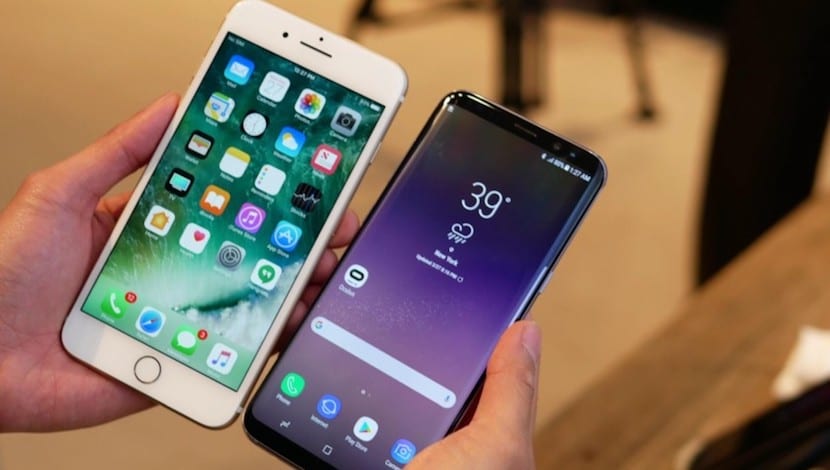
After the usual informative bombardment in these cases, it is difficult that you still do not know but, just in case, Samsung's new Galaxy S8 and Galaxy S8 + have officially gone on sale And with this, it is time to carry out the multiple comparative analyzes that are also common in these circumstances, especially with respect to its maximum rival, which, in this case, would be the iPhone 7 Plus.
For this reason, David Rahimi, youtuber of the PhoneBuff channel, has carried out a very interesting analysis in which compare RAM memory management between both devices. The result, as you can see below, shows that not everything is a matter of numbers.
More RAM does not necessarily mean higher efficiency
Well, I have already broadly advanced the result of this comparative analysis carried out between Samsung's Galaxy S8 + and Apple's iPhone 7 Plus, as far as RAM memory management is concerned, however, let's go by parts.
Today, the iPhone's greatest rival continues to be Samsung and your new Galaxy S8 and Galaxy S8 + devices. Both terminals, we cannot deny them, are incredibly beautiful in terms of design, offer components and features of enormous quality and, why not say it, they have certain characteristics that many users want to see in a future iPhone and that, without a doubt, we will end seeing.

With its new flagships, at least for the moment, Samsung has shown that it is capable of continuing to do things well, it seems to have left behind the happy chapter of the Note 7 and, above all, it has not been resentful, since the reserves of the new terminals are being 30% superior to those of its predecessor. However, not like this memory management of the same ones that, as we will see, remains below the iPhone 7 Plus, despite having 1GB of additional RAM.
For a long time, and even today, users of any Apple computer have praised the high degree of efficiency and performance of our devices, they found that this was because the operating system and hardware were designed to marry each other seamlessly. Thus (together with other factors of software and also hardware) an iPhone could be faster than an Android, despite including less RAM. This is precisely what the youtuber of the PhoneBuff channel has revealed, once again.
With the release of a new terminal like Samsung's Galaxy S8 +, the question of performance, speed, efficiency always arises. With 4 GB of RAM, it would be easy, and almost logical, to assume that the South Korean smartphone was faster than the iPhone 7 Plus, which has 3 GB of RAM. However, as we will see in the next video, this is not the case.
In this RAM management analysis we must also take into account that Samsung's Galaxy S8 + is powered by an octa-core Snapdragon 835 processor from Qualcomm, while the iPhone 7 Plus has a quad-core Apple A10 Fusion processor. .
This has been the test carried out
In the tests that have been carried out by David Rahimi, a Galaxy S8 + and an iPhone 7 Plus have been placed side by side, and their speed has been timed based on the processor and RAM memory characteristics already mentioned.
For this, two rounds have been carried out. In the first, a series of applications have been opened from scratch, one after another. In this phase iPhone 7 Plus has proven to be faster completing the lap in 1 minute and 13 seconds, compared to 1 minute and 24 seconds for the Galaxy S8 +.
Next, we proceed to launch the same series of applications, but this time from RAM (that is, without starting them from scratch). The end result is that the iPhone 7 Plus is faster than the Galaxy S8 +, having completed both rounds about 38 seconds ahead.
So the tests again demonstrate something that has been said for a long time: more robust hardware does not necessarily mean better performance.
Below, you can see the video of the test in full.